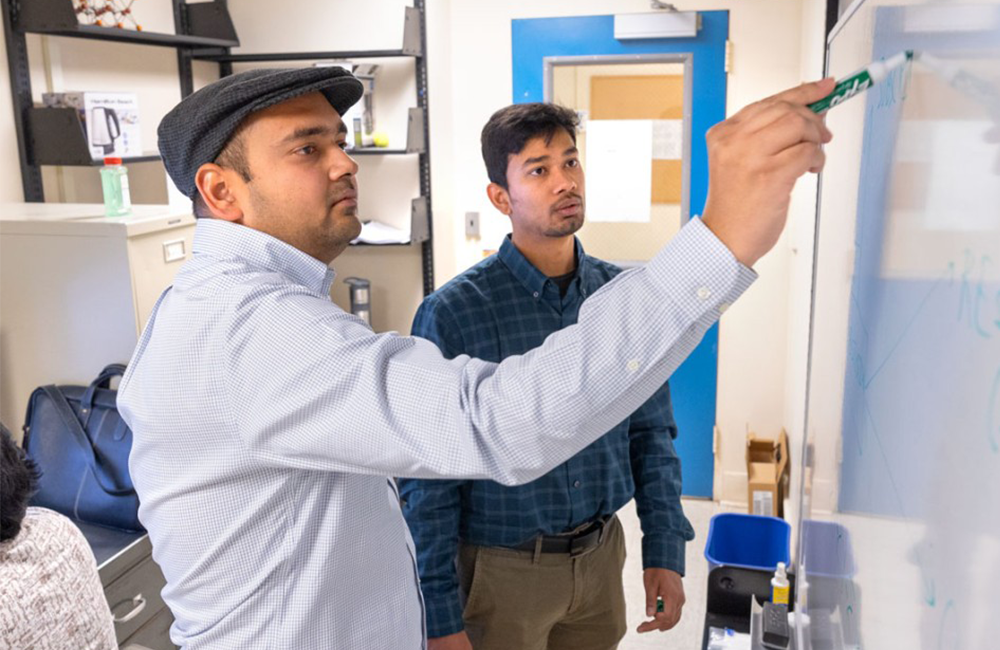What if consumers had more control over their energy consumption and utility costs? A new app and subscription-based payment plan piloted by I-Corps alumni is designed to provide electricity users with information about – and incentives to reduce – their usage.
“We have all been consuming electricity since we were born, but we don’t know how we consume electricity,” said Madhur Srivastava, assistant research professor in chemistry and chemical biology in the College of Arts and Sciences at Cornell University. “We have no understanding of how much electricity each appliance uses, for example, or each light bulb, or how the costs change for a particular time of use. How can we change our behavior if we have no analysis of it?”
Led by Srivastava’s Signal Science Lab, the pilot will offer a tiered, subscription-based pricing plan to participants, beginning in late-January. AVANGRID, the parent company of New York State Electric and Gas (NYSEG), is an initial partner in the project. Around 200 NYSEG customers have enrolled, but customers of any utility company in the U.S. can register.
Through participation in I-Corps Teams, as well as a previous I-Corps regional course, Srivastava and Shikhar Prakash, a Cornell doctoral candidate, were able to explore the problem of fluctuating energy costs and how it impacts the community and the electrical grid. During the six-week I-Corps Teams program, Srivastava and Prakash interviewed more than 250 AVANGRID customers and industry employees to better understand their pain points and needs.
The interviews provided key insights – namely how small businesses, hotels, apartment buildings and single-family homes with varying incomes all had different patterns of use and associated challenges. The information gathered underlined the need for an algorithm that could segment and classify customers, which Prakash and Shrivastava developed with their research team.
“We have to ask how people want the solution to be and then use science to develop that solution, rather than develop a solution and ask people to change because science said so – that never happens,” Srivastava said. “We need to understand the exact needs of the community and the stakeholders.”
Srivastava and his students hope the new payment plan and app will help consumers moderate their electricity use, reduce strain on the electrical grid, and allay the need for more expensive infrastructure, which raises costs for consumers. They also hope the project lays the groundwork to impact energy policy both in New York state and nationwide, especially in the western U.S., where summer blackouts have become common. Srivastava is currently in talks with multiple utility companies from across the country – all facing similar challenges – to formally expand the pilot.
Read the full story on the project in the Cornell Chronicle.


